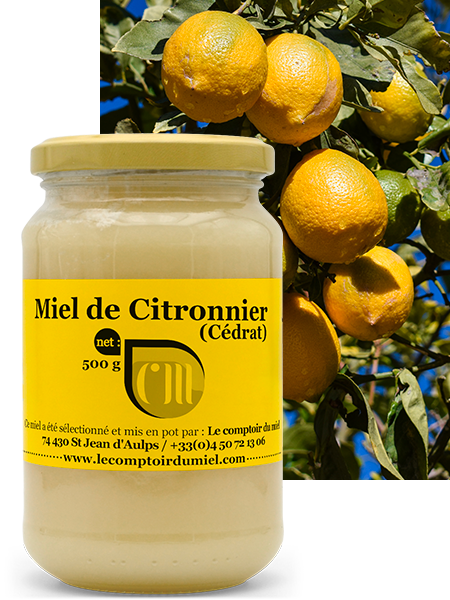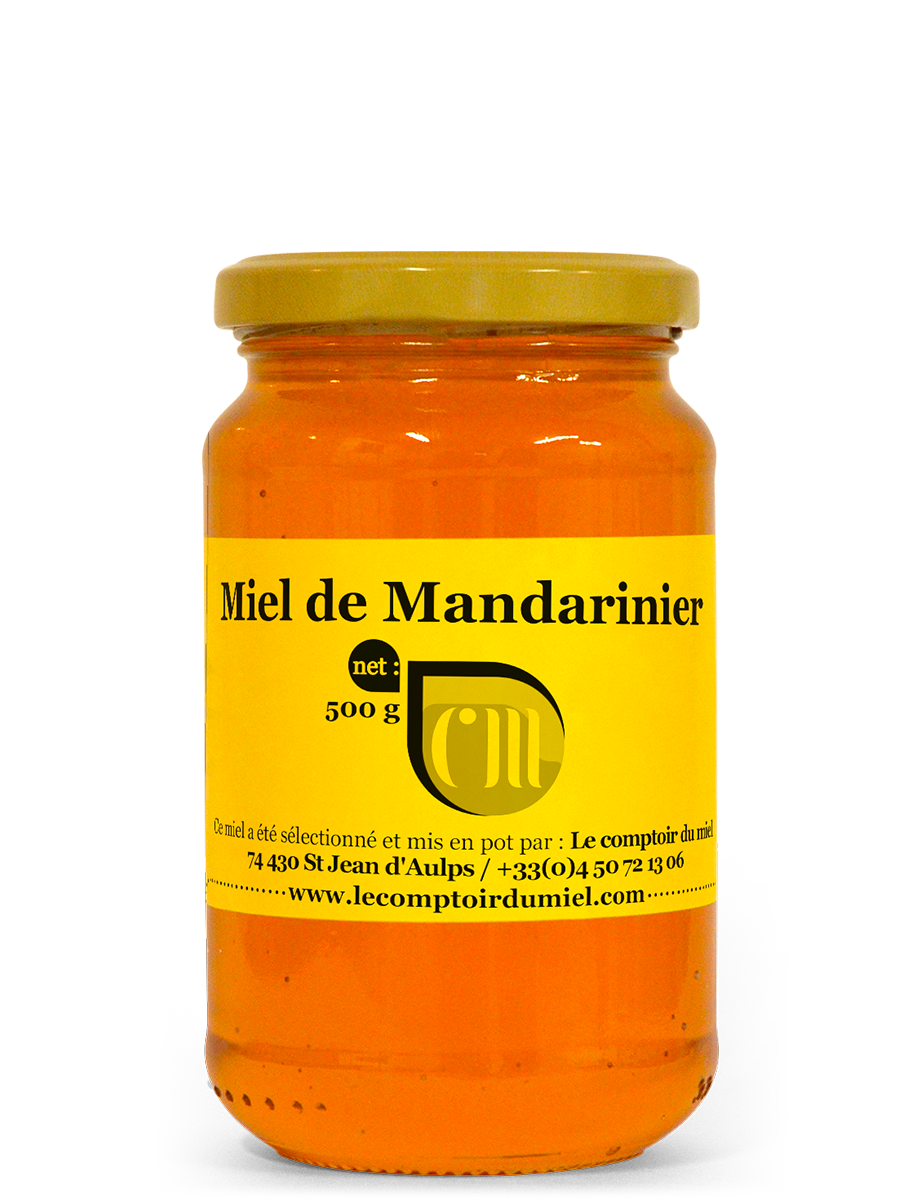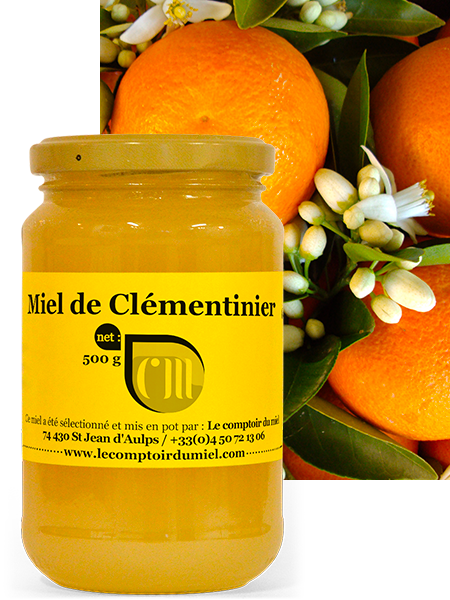Excellent as a culinary garnish or natural sweetener, our monofloral Sicilian lemon honey is excellent for sweetening syrups.
At snack time, it goes very well with ice cream, blends perfectly with tea and is a delight for young and old alike. So pleasant to use as a culinary complementWe could also imagine it being used in a recipe for a revisited lemon meringue pie.
Our lemon honey, also known as citron honey citron honey comes from a fruit tree endemic to Sicily. This citrus fruit, a close relative of the lemon, can weigh up to 4 kilos and grow to a height of 25 centimetres. Its juicy, pulpy flesh is bursting with nutrients, and the fragrance of its zest is pleasant. This scent is echoed in the floral, aromatic sensation of its flavor.
Harvested in the Catania region, our citron lemon honey comes from pesticide-free cultivation, where tree workers are committed to sustainable, high-quality production.
Unlike other citrus fruits, the citron is mainly used for its thick rind and zest, which are used to flavor dishes and drinks, as well as to make confectionery.
The taste and flavour of Sicilian lemon honey:
Its fragrance has a distinctly acidic note. Its taste is reminiscent of the scent, slightly acidic. Although it can sometimes crystallize in large grains, it retains its characteristic acidic note. It’s a taste you can recognize without hesitation, in a blind tasting for example.
The benefits and properties of Sicilian lemon honey:
Lemon is said to have antiseptic, rheumatic and antioxidant effects, and is considered a major natural remedy. A common food with many medicinal virtues, it is high in vitamin C, which promotes resistance to infection, making it a valuable ally against colds and flu. It is also used as a preventive treatment for gastritis, circulatory problems and arteriosclerosis (thickening of the arterial walls). Does our lemon honey have all these benefits? You be the judge!
Did you know?
In France, lemon trees are grown in the Menthon region, which has a PGI, and in Corsica.
Italy has the greatest diversity of lemon trees, with seven PGIs.
Maceration of the lemon peel yields the famous Limoncello, which also has a PGI.



Reviews
There are no reviews yet.